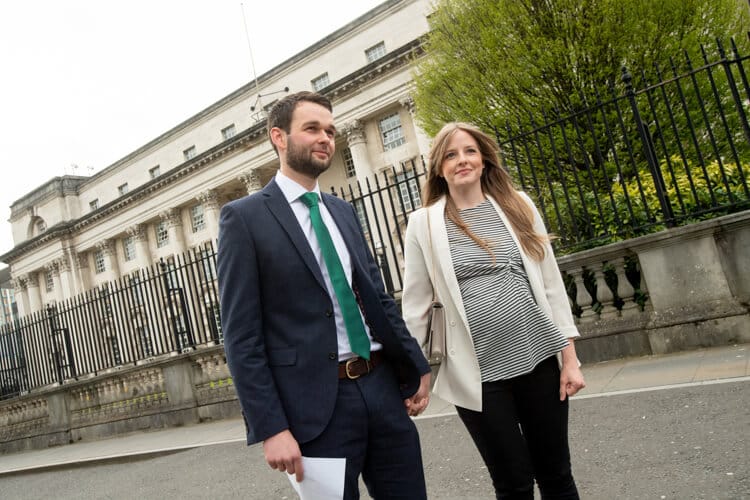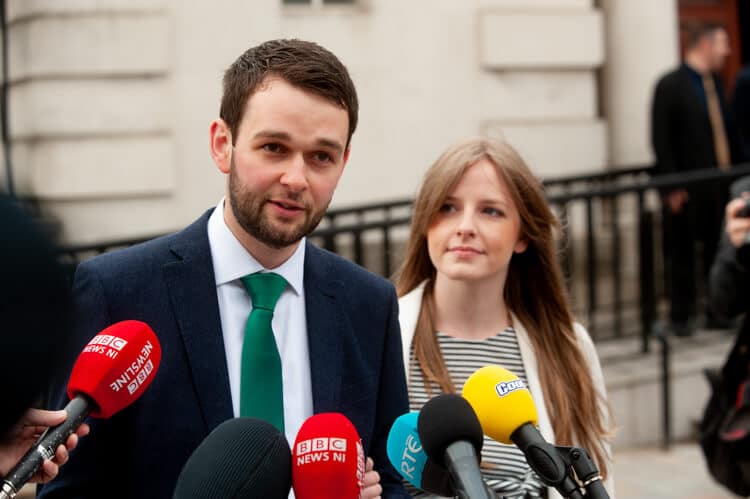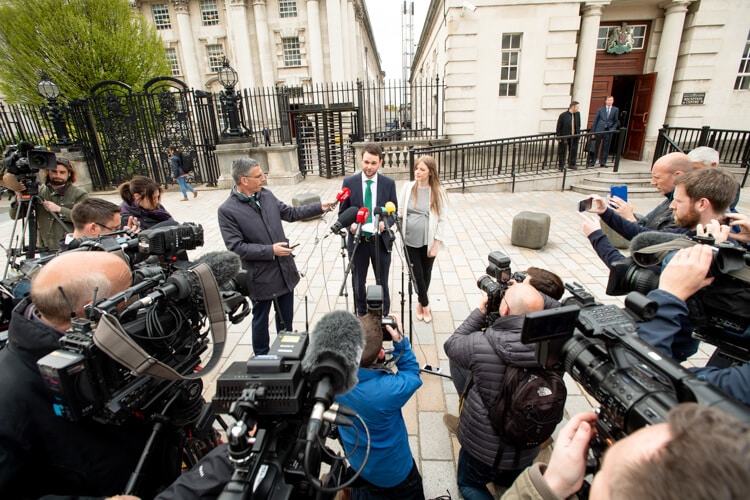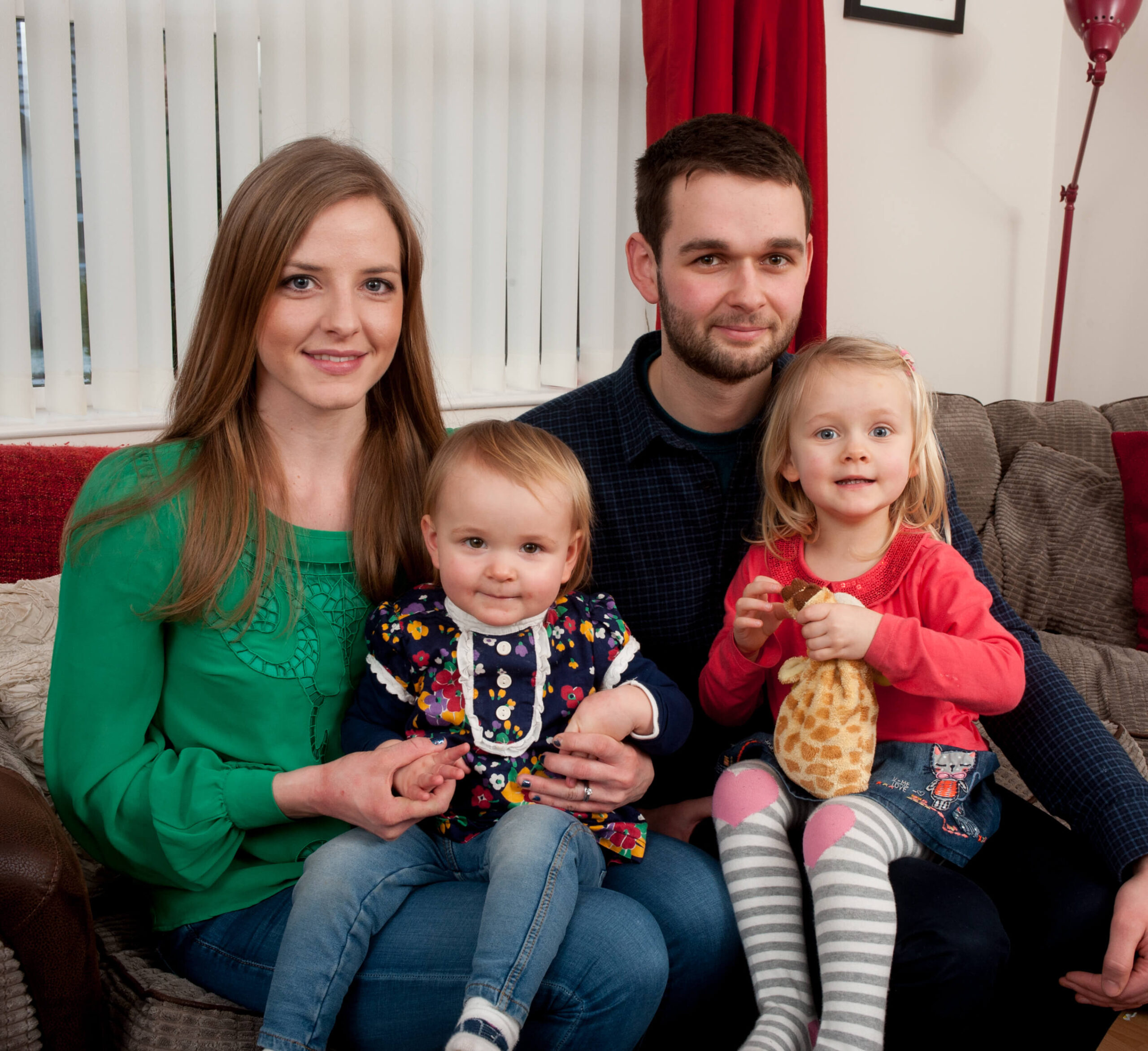Supreme Court win for Ashers is needed for everyone’s sake

The Supreme Court sat in Belfast for the first time this week to hear arguments on the Ashers ‘gay cake’ case.
The case could have profound implications for the freedoms of people across the UK.
Ashers Baking Company was sued in 2014 after politely declining an order for a cake decorated with the slogan “Support Gay Marriage”.
Message, not the customer
Daniel McArthur, General Manager of Ashers, explained: “We took issue with the message on the cake and not the customer and as a family we believe we should retain the freedom to decline business that would force us to promote a cause with which we disagree.”
This week it was our privilege to stand with them again
The McArthur family came to The Christian Institute for help in 2014, when the Equality Commission for Northern Ireland threatened legal action on behalf of the activist who placed the order.
We backed the family when they were brought before Belfast County Court. There, the judge ruled that they had discriminated on three grounds: sexual orientation, religious belief, and political opinion.
Vital
Then they went to the Court of Appeal. But it upheld the previous ruling. This week it was our privilege to stand with them again when they appealed to the highest court in the land.
The way the UK Supreme Court interprets the law in the Ashers case is vital. It will affect how equality law in every part of the UK is applied.
Firstly, it could determine how Scotland, England and Wales apply something called ‘associative discrimination’.
Novel and worrying
At present, as well as being unlawful to discriminate against a person because of their own race, religion or sexual orientation, it can be unlawful to refuse a customer because of the race, religion or orientation of someone connected to them.
The McArthur family didn’t know, or act upon, the orientation of the customer or anyone connected to him. They served him previously and would gladly do so again.
Hugely problematic for free speech
Instead, the family were held to have discriminated because the wording they declined to ice on the cake – “Support Gay Marriage” – was said to be ‘associated with’ gay people.
This aspect of the ruling created a novel and worrying extension to the law.
Problematic
In effect, it means that you can be guilty of discriminating against an idea – such as gay marriage – because it is associated with a particular group of people. The finding is hugely problematic for free speech.
Normally, if someone asks you to support an idea, you can either speak against it or keep your silence.
But what if you can be sued for not helping promote someone else’s ideas? That’s not lost on the NI Attorney General John Larkin who has intervened in the case.
He told Supreme Court judges that discrimination law “is directed at the protection of people. It’s not directed at the protection of messages.”
Turned on its head
Another way the case will affect the whole of the UK is in laws on religion or belief discrimination.
The County Court said the fact that a person’s act is motivated by his own religious belief can constitute discrimination.
This risks turning the entire purpose of religious discrimination law on its head. Rather than protecting religious people it may deem their faith-motivated actions to be unlawful.
Upfront
This is particularly concerning since, unlike race or sexual orientation, religious belief governs the whole of a person’s life and actions. It is a major motivator of their activity.
The McArthurs are upfront about their Christian beliefs
If turning down orders for religious reasons is deemed ‘discrimination’, then refusing to promote a nightclub, for example, could lead to litigation – even though nightclubs do not come under any protected characteristic in equality law.
The McArthurs are upfront about their Christian beliefs in their business dealings. They do not open on Sundays. They have turned down other cake orders for religious reasons, including designs involving nudity or bad language. They even named their business after the biblical tribe of Asher.
Many small businesses have an ethos that governs their decisions. That’s partly why people from all walks of life support Ashers because they recognise their own freedom could be similarly infringed.
Totally at odds
The McArthurs were asked to use their best efforts to help promote something against their Christian beliefs.
But no one should be forced to use their creative skills to celebrate ideas totally at odds with their own.
If the Ashers ruling stands, a gay baker could be sued for refusing to create an anti-gay marriage cake. A Roman Catholic printer could be punished for refusing to print literature calling for abortion on demand. An atheist web designer could be punished for refusing to design a site supporting creationism.
Who would want to live in that kind of world? The Supreme Court must rule in Ashers’ favour, for everyone’s sake.
This article first appeared in the Belfast News Letter on 4 May 2018.



